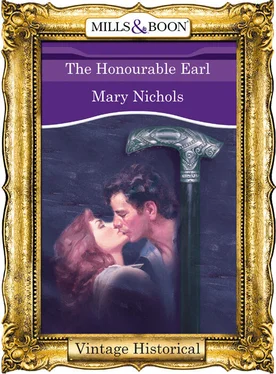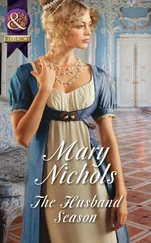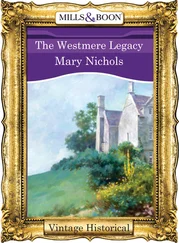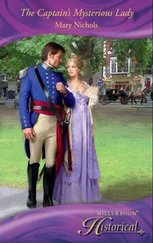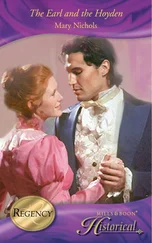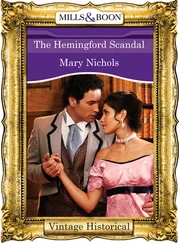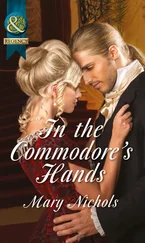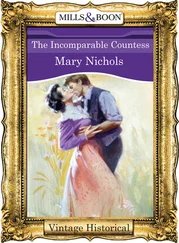Mary Nichols - The Honourable Earl
Здесь есть возможность читать онлайн «Mary Nichols - The Honourable Earl» — ознакомительный отрывок электронной книги совершенно бесплатно, а после прочтения отрывка купить полную версию. В некоторых случаях можно слушать аудио, скачать через торрент в формате fb2 и присутствует краткое содержание. Жанр: unrecognised, на английском языке. Описание произведения, (предисловие) а так же отзывы посетителей доступны на портале библиотеки ЛибКат.
- Название:The Honourable Earl
- Автор:
- Жанр:
- Год:неизвестен
- ISBN:нет данных
- Рейтинг книги:3 / 5. Голосов: 1
-
Избранное:Добавить в избранное
- Отзывы:
-
Ваша оценка:
- 60
- 1
- 2
- 3
- 4
- 5
The Honourable Earl: краткое содержание, описание и аннотация
Предлагаем к чтению аннотацию, описание, краткое содержание или предисловие (зависит от того, что написал сам автор книги «The Honourable Earl»). Если вы не нашли необходимую информацию о книге — напишите в комментариях, мы постараемся отыскать её.
The Honourable Earl — читать онлайн ознакомительный отрывок
Ниже представлен текст книги, разбитый по страницам. Система сохранения места последней прочитанной страницы, позволяет с удобством читать онлайн бесплатно книгу «The Honourable Earl», без необходимости каждый раз заново искать на чём Вы остановились. Поставьте закладку, и сможете в любой момент перейти на страницу, на которой закончили чтение.
Интервал:
Закладка:
‘I do not know,’ her mother answered. ‘We shall have to wait and see.’
The funeral could not be delayed when no one knew if the new Earl had even been informed of the tragedy. Some said he had died of a fever in the tropics; some said he had served as a common soldier and died in battle. Others said he was alive, but would never dare show his face. Others, who sympathised, said he would see the Fostyns off his land as soon as he came, which was no more than they deserved.
The day before the funeral, a second tragedy struck. The Countess escaped those employed to look after her and threw herself from the roof of the Hall. Grief, everyone said, grief and the fact that her husband had turned to Mrs Fostyn when he lay dying and not to his wife. Lydia was furious on her mother’s behalf and was all for making public what her mother told her about the Countess’s state of mind, but Anne refused to countenance such a thing and said the Earl and Countess should be allowed to lie in peace.
There were two funerals instead of one and still the speculation went on about the new Earl and what was to happen to the Hall if he could not be found. And no one speculated more than the Fostyn family. They lived in the dower house only by courtesy of the dead man. Where would they go if they were turned out? How would they live?
‘We must hold our heads up, pretend nothing is wrong,’ their mother said, though Lydia was not sure how much of the gossip she had heard. ‘We will finish these gowns. If there is no Victory Ball, there will be others.’
Which was how Lydia and Anne came to be in Chelmsford a month after the funeral, searching for pink velvet ribbon for Annabelle’s gown and braid to match the brocade of Lydia’s. Anne wanted to visit an old friend and Lydia suspected she needed someone to confide in, someone to whom she could tell her troubles; talking to her daughters was not the same thing at all.
‘You look for the ribbon, Lydia, and meet me in the lending library.’ She smiled suddenly. ‘I do not know how long I shall be but, if you are surrounded by books, you will not mind waiting.’
They parted in the street. Lydia watched her mother go with an ache in her heart, wishing she would confide in her more than she had. But when she had spoken of her problems, the day before the Earl’s death, Lydia admitted she had not taken her as seriously as she should have done. And now her mother had shut her out, taken control of herself, and was determined to look after her brood no matter what. Lydia sighed. She had to do something to help and the only thing she could do was to consider marriage.
She pulled herself together and went into a tiny haberdashery shop where she found the pink ribbon, but there was no match for the braid. She tried other establishments to no avail and was just leaving the last shop when it started to rain heavily. She stood in the doorway, waiting for it to ease, when she was joined by a young man with an umbrella. The doorway was narrow and the rain was pouring off the overhanging roof on to her shoulders.
‘Allow me,’ he said, holding the umbrella over her. ‘It is big enough for both of us if we stand closer.’
‘Thank you,’ she said primly, but declined to move nearer to him. He was already too close for her peace of mind.
Her first impression of him was his height and the breadth of his shoulders as he stood beside her. The second was the fineness of his clothes. He was wearing a coat of a fine worsted cloth lined with red silk. The collar and cuffs of the sleeve were faced with the same silk embroidered with gold and silver thread. It was an expensive coat, but he wore it casually as if it was of no importance to him that it was being spotted with rain. She tilted her head up so see his face and was taken aback to find him scrutinising her as if he meant to memorise every detail.
For a moment she continued to look up at him, noticing that his features were even, his nose long, almost haughty, and his skin was tanned and crinkled round his mouth as if he were more used to laughter than frowns. He wore a dark wig dressed away from his face with long side curls and the back tied with a narrow grey ribbon. His dark eyes were looking at her with a slightly mocking expression and she realised that she, too, had been staring and cast her eyes down.
She was met with the sight of an embroidered brocade waistcoat with a row of silver buttons from the neck, where a lace cravat frothed, down to his narrow waist. His long legs were clad in knee-length fitted breeches tucked into shining boots, which emphasised his muscular calves. Embarrassed, she turned to stare out at the rain-sodden street where puddles were gathering and filling the gutter.
‘I never thought an article like an umbrella would stand me in such good stead,’ he said with a chuckle. ‘I was in a mind not to bring it out today, but I am glad that I did.’
She was aware of the undercurrent of meaning he put behind the words and felt the colour flare in her face. ‘Indeed, sir, you would have been very wet else.’ She risked a glance up into his face and smiled. ‘As it is, I do believe you are already very damp. Pray, hold it over yourself and not me. I have my cloak.’
‘I do not mind the rain. I am used to it. Where I come from, the monsoon is a hundred times more wet.’
She laughed. ‘Wet is wet, sir, how can one rain be wetter than another?’
‘Oh, I assure you it is. Have you ever been to India? No, I will wager you have not, but if you had, you would know exactly what I mean.’
India, she mused. Then he was a nabob, grown rich on trade and made bold by it. But the strange thing was that she was not repelled as she should have been. She found herself drawn to him, as if there was something from him to her, a fine but strong thread, pulling her to him. ‘I should like to travel some day.’ she said. ‘But you are right. I have never been away from England in my life.’
‘Not even to London?’
‘Once I went, a long time ago, but not since—’ She stopped suddenly and then went on. ‘Not since I was a child.’
He detected the wistfulness in her voice and wondered what had caused it. He looked down at her. She was slight; the top of her head hardly reached his shoulder, but he sensed an inner strength, a steely determination. She was no wilting violet. Her eyes, looking up at him without fear, were hazel, but they had golden lights in them that glowed when she smiled like the tiny lights of the will o’ the wisp that twinkled over the marshes on dark nights. Her hair was thick and a glorious russet brown. The cloak which covered her gown was a plain grey broadcloth tied at the neck with matching ribbon, not the garment of a young lady from a wealthy family, but not poverty-stricken either. ‘Then I hope you have your wish, my lady.’
‘Thank you, but I am not entitled to be called lady.’
‘You are in my book,’ he said softly. ‘For want of a name.’
She ignored his hint to provide her name and turned from him. ‘I do believe the rain is easing and I shall venture forth.’
‘Must you? I was just beginning to enjoy myself.’
‘I have arranged to meet my mother at the library. She will be waiting for me.’
‘Then allow me to escort you. The rain has not quite stopped and you will need my umbrella.’
‘It is but a short step, sir. I would not put you to the trouble…’
‘It is no trouble, it is a pleasure.’ He fell into step beside her, carefully holding the umbrella over her. ‘Do you come often to Chelmsford?’
‘Occasionally when I need something I cannot buy in the village.’
‘Which village?’
‘Oh, it is such a small place, you would not have heard of it, I am sure.’ He was flirting with her, she knew, and she ought not to be talking to him at all, but they were unlikely to meet again, so where was the harm? And keeping him guessing was all part of the fun. She stopped at the door of the library. ‘Here we are. I said it was only a step, did I not? Thank you for your escort, sir.’
Читать дальшеИнтервал:
Закладка:
Похожие книги на «The Honourable Earl»
Представляем Вашему вниманию похожие книги на «The Honourable Earl» списком для выбора. Мы отобрали схожую по названию и смыслу литературу в надежде предоставить читателям больше вариантов отыскать новые, интересные, ещё непрочитанные произведения.
Обсуждение, отзывы о книге «The Honourable Earl» и просто собственные мнения читателей. Оставьте ваши комментарии, напишите, что Вы думаете о произведении, его смысле или главных героях. Укажите что конкретно понравилось, а что нет, и почему Вы так считаете.
